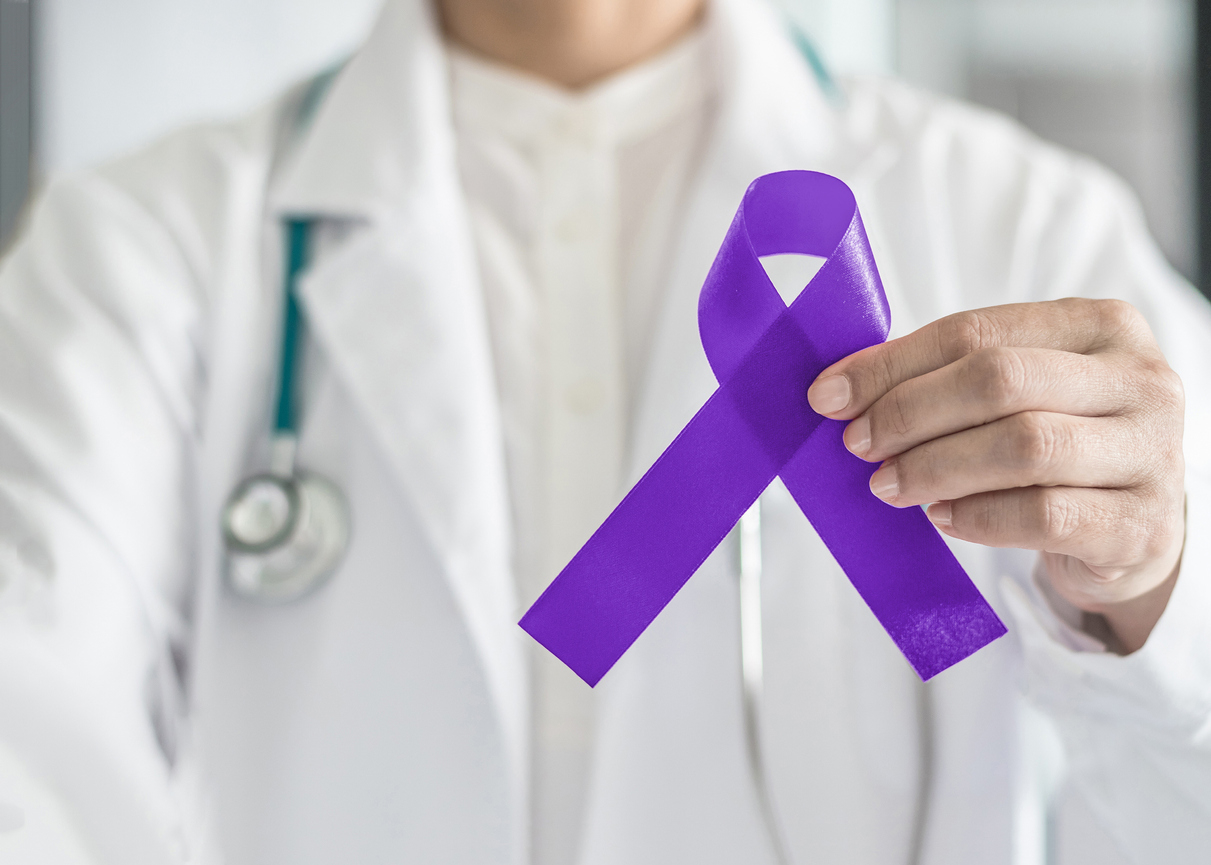Commitment + Clinical Leadership = Better Outcomes

June is Alzheimer’s & Brain Awareness Month
Did you know that more than 6 million Americans older than 65 have Alzheimer’s?1 Alzheimer’s is the most common cause of dementia and the 6th leading cause of death in the United States.2
June is Alzheimer’s & Brain Awareness Month, which is the time to learn about Alzheimer’s, the warning signs, and how you can help those who have it.
What is Alzheimer’s?
Alzheimer’s is a brain disease that causes dementia. Alzheimer’s disease begins when the cells that control the brain are damaged, which in turn causes irreversible changes to the brain and cognitive functioning.3 The disease eventually causes the brain to shrink and brain cells to die.4
Alzheimer’s is irreversible and slowly diminishes an individual’s memory and thinking skills.1 When memory and thinking skills decline, it affects behavior. Over time, the symptoms of Alzheimer’s become severe, which interferes with an individual’s life and daily tasks.
What is the difference between dementia and Alzheimer’s?
Dementia and Alzheimer’s are oftentimes mixed up or used as interchangeable terms. Although these two medical diagnoses sometimes go hand-in-hand, they are not the same.
Dementia is a general term for a decline in memory. Alzheimer’s is a specific brain disease that causes brain cells to die.3
An individual can experience dementia, which is a decline in their memory, without having Alzheimer’s.
What causes Alzheimer’s?
The exact cause of Alzheimer’s is unknown. Scientists believe that Alzheimer’s could be brought on by numerous factors, including genetics, lifestyle, and environmental factors.4
Studies show that the greatest risk factor for Alzheimer’s is age, with most individuals diagnosed being 65 or older.5 After age 65, an individual’s chances of being diagnosed with Alzheimer’s doubles every five years.
Family history, such as a first-degree relative having the disease, may also increase an individual’s risk of being diagnosed with Alzheimer’s.
Head trauma and excessive alcohol consumption can also cause changes to the brain, which can put someone at a higher risk for Alzheimer’s.4
Warning Signs of Alzheimer’s
For most individuals who are diagnosed with Alzheimer’s, the signs and symptoms start to show around 60 years old.1 These symptoms vary and can worsen over time depending on the severity.
According to the Centers for Disease Control and Prevention, some of the signs of Alzheimer’s include:
- Memory loss
- Trouble solving problems or planning
- Difficulty completing familiar tasks such as cooking, cleaning, and driving
- Confusion with place and time
- Trouble speaking or writing
- Changes in mood and personality
If you or a loved one experience any of these symptoms, talk with a medical professional about the possibility and risks of Alzheimer’s.6
How to Support Those with Alzheimer’s
Whether or not you know someone with Alzheimer’s, there are many ways to show your support.
Caring for a loved one with Alzheimer’s
Experiencing someone close to you living with Alzheimer’s can be difficult. Here are some ideas to help you navigate through caring for someone in this phase of life:
- Plan a routine – When someone has Alzheimer’s, it can help them feel more relaxed if there is a plan or routine so they know what to expect. Think about their likes, dislikes, and how they would typically spend their day.
- Limit noise – Loud sounds can be distracting and overwhelming for those with Alzheimer’s. Be mindful of sounds such as a loud TV, music, people, and chores.
- Be patient – Those with Alzheimer’s will forget things or have a hard time remembering. Be patient and guide them through the day if needed. While you may find yourself repeating a lot, remember that those with Alzheimer’s are trying their best to remember.7
Donate
Donations to the Alzheimer’s Association help provide support, online education, and research initiatives for those with Alzheimer’s. Click here to donate.
Participate in an Event
There are a few different event options to participate in and show your support for those with Alzheimer’s.
- Walk to End Alzheimer’s: The Walk to End Alzheimer’s is the world’s largest event that raises money for Alzheimer’s care and research. You can find a walk near your community, sign up as an individual or with a team, then walk and raise funds! Learn more here.
- The Longest Day: The Longest Day takes place during the Summer Solstice – June 20th this year – which is the day with the most sunlight. People participate in this event by hosting different activities to fundraise for Alzheimer’s. Learn more about what you can do here.
- Volunteer: Volunteering is always a great way to help a cause that is important to you. Options include volunteering at any event going on in your community, participating in research, or becoming a Virtual Community Representative.
Saber Healthcare is an organization dedicated to providing consultant services to long term care providers. This article is for informational purposes and is not meant to be seen as professional advice. Please consult with a medical expert before relying on the information provided.
Sources
- https://www.nia.nih.gov/health/alzheimers-disease-fact-sheet.
- https://www.alz.org/alzheimers-dementia/what-is-alzheimers.
- https://www.alz.org/alzheimers-dementia/difference-between-dementia-and-alzheimer-s.
- ttps://www.mayoclinic.org/diseases-conditions/alzheimers-disease/symptoms-causes/syc-20350447.
- https://www.alz.org/alzheimers-dementia/what-is-alzheimers/causes-and-risk-factors.
- https://www.cdc.gov/aging/healthybrain/ten-warning-signs.html.
- https://www.webmd.com/alzheimers/alzheimers-tips-for-daily-life.
